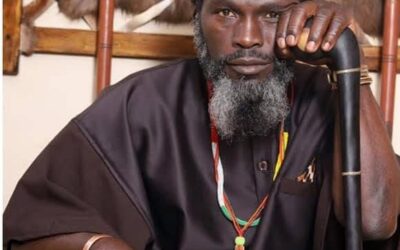Bafana Phalane
The African National Congress (ANC), South Africa’s once-dominant political force, finds itself at a critical juncture following its historic loss of the majority in recent elections. Faced with growing internal divisions, public dissatisfaction, and external criticism, the party has had to adapt to a new political reality. Yet, true to its history, the ANC has shown resilience and a capacity to navigate adversity. The question remains: can the ANC rise above these challenges to renew its commitment to the people of South Africa?
Unity Through a GNU Comes at a Cost
After losing its majority, the ANC’s decision to form a Government of National Unity (GNU) alongside the Democratic Alliance (DA) was met with mixed reactions. While President Cyril Ramaphosa positioned this move as an effort to unite the country, it sparked dissent within ANC ranks. Key members expressed dissatisfaction publicly, with some resigning to join breakaway parties like the newly formed MK Party. This fracturing echoes previous schisms in the ANC, such as the Congress of the People (COPE) formation in 2008. Many predicted the ANC’s disintegration back then, yet the party managed to reassert itself and return to power.
The recent elections in KwaZulu-Natal (KZN) saw the MK Party emerging as a major player. However, the ANC’s political acumen enabled it to outmaneuver the MK Party and play a decisive role in forming the provincial government. These events highlight the ANC’s enduring influence and it’s ability to forge strategic alliances, even in challenging circumstances.
Internal Dissent and the Challenge of Renewal
Despite its victories, the African National Congress (ANC) is facing significant external challenges. A notable example is Floyd Shivambu, who has switched allegiance from the Economic Freedom Fighters (EFF) to the MK Party. Interestingly, Shivambu previously advocated for the removal of the ANC from society, but his recent party-hopping suggests a desperation to remain politically relevant.
This development highlights the volatility of South Africa’s political landscape. Furthermore, internal criticism within the ANC has led to calls for stronger leadership to address growing dissatisfaction among citizens and counter the party’s political opponents. The ANC’s ability to navigate these challenges will be crucial in maintaining its relevance in South African politics.
As Ramaphosa’s term nears its end, the ANC faces uncertainty over its future leadership. While names like Malusi Gigaba, Ronald Lamola, Panyaza Lesufi, Oscar Mabuyane, and many more have emerged as potential future leaders, the question of gender equity remains unanswered. Women within the ANC and broader society continue to demand greater representation and leadership opportunities. If the ANC fails to address this issue, it risks alienating a significant portion of its support base, just as it lost many young voters to the Economic Freedom Fighters (EFF) previously.
The ANC’s revival of the Youth League offers a potential lifeline, but the party must also tackle the pressing issue of gender parity. This is not merely a matter of representation but of demonstrating the ANC’s commitment to building an inclusive society. As Oliver Tambo famously warned, “Beware the wedge driver! Men who creep from ear to ear, driving wedges among us; who go around creating splits and divisions.” The ANC must heed this advice, closing ranks against detractors and refocusing on its core mission.
The Fight Against Corruption and Inequality
For the ANC to reclaim its position as South Africa’s leading political force, it must take a decisive stand against corruption. The party’s credibility has been deeply undermined by individuals who have exploited its systems for personal gain. These “wedge drivers” are not revolutionaries but opportunists, and the ANC must root them out to rebuild public trust.
Former President Thabo Mbeki has also weighed in, emphasizing the need for the ANC to address poverty and unemployment as central challenges facing South Africa. Mbeki’s advice is clear: “We cannot hope to succeed as a nation if the majority of our people remain trapped in poverty, with no hope for a better future. The ANC must lead the charge in creating sustainable jobs, improving education, and fostering economic growth.” Mbeki’s words resonate in a country where inequality remains one of the highest in the world, and unemployment continues to hover at crisis levels.
A Path Forward: Rebuilding the ANC’s Soul
The ANC’s legacy as a liberation movement and nation-builder is undeniable, but its future depends on its ability to adapt and renew itself. To regain the trust of South Africans, the party must take bold steps to address corruption, prioritize gender equity, and tackle the twin crises of poverty and unemployment. Unity within the party is crucial, as is the inclusion of younger, dynamic leaders who can connect with the country’s diverse and evolving electorate.
As the ANC prepares for the challenges ahead, it must remember the words of Oliver Tambo: “The order that comes from the Conference (Morogoro Conference in 1969) is, ‘close ranks.’ Be vigilant, comrades. The enemy is vigilant.” The ANC’s ability to close ranks, confront its internal challenges, and remain true to its mission will determine whether it can continue to lead South Africa into the future. The days ahead are uncertain, but the ANC has proven time and again that it can rise above adversity. The question now is whether it can once more forge a path forward for itself and the nation.
Bafana Phalane: Editor and Founder @ Maverick Point








13 thoughts on “Can the ANC Bounce Back? Overcoming Corruption, Division, and Doubt.”